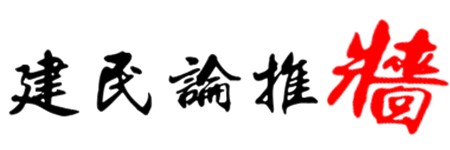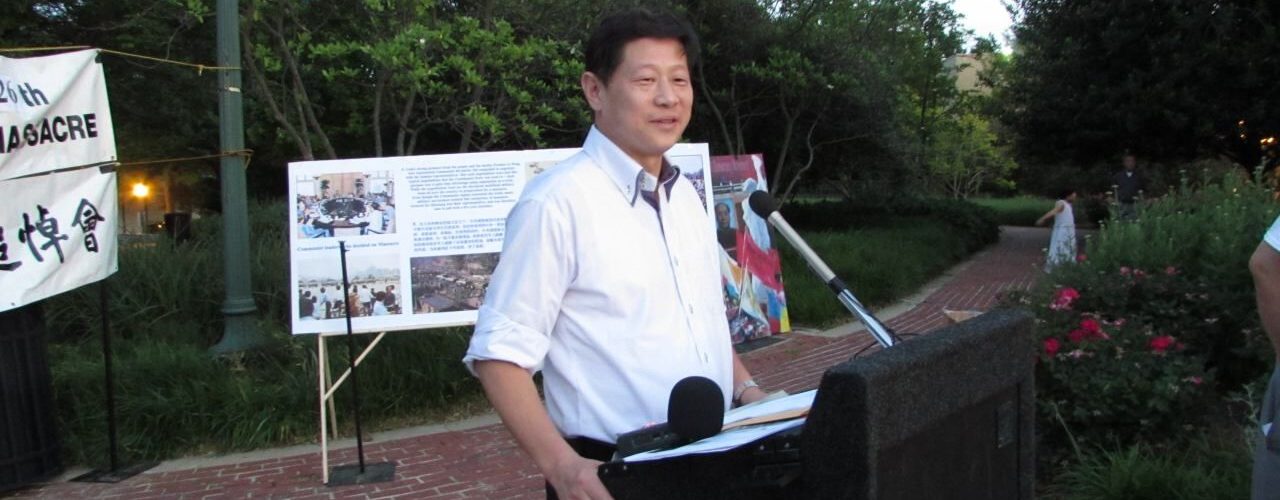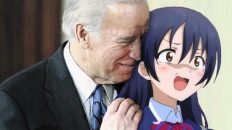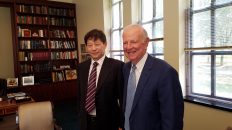A Young Political Prisoner in the Grand Picture of US-China Diplomacy in the Wake of June 4th Massacre
By Yaxue Cao, May 11, 2016

WU JIANMIN IN 1989.
Former Chinese Foreign Minister Qian Qichen (钱其琛) wrote a memoir titled Ten Episodes in China’s Diplomacy soon after retiring in 2003. With sweeping promotion by the Party’s propaganda apparatus that directs much of the state media, it became a bestseller. One of the ten episode deals with the China-U.S. diplomacy after the June 4th Massacre. Of course, that’s an objectionable term for the Chinese Communist Party, so Mr. Qian refers to it as “[that period] in the late 1980s and the early 1990s.” The English edition was published in 2006 by HarperCollins, with the endorsement of Harvard professor Ezra Vogel, who proofread the translation and provided a foreword.
By Qian’s account, on June 21, 1989, a mere two weeks after the massacre in Beijing, President George H. W. Bush wrote a secret letter to Deng Xiaoping “asking to send a special envoy to China to have a frank talk with Deng.” (p. 131)* On July 1, Bush’s national security adviser Brent Scowcroft, accompanied by Deputy Secretary of State Lawrence Eagleburger, flew to Beijing. The trip was so secret that even the U.S. Embassy in China was not notified. To make sure no one knew, the C-141 military cargo plane carrying the envoy was disguised as an ordinary commercial carrier with its Air Force markings removed. The plane flew 22 hours, refueling in midair, so it wouldn’t have to land before its destination. It carried its own communication equipment so that Scowcroft would not have to use the equipment in the U. S. Embassy in Beijing. While in Beijing, “no national flags were displayed at the venues for meetings, talks, or banquets, or on the car Scowcroft used, or at the hotel where he was staying. No news reports were released about his arrival or when he left Beijing. All photographs were… sealed as historical materials.” (p. 133)
In the wake of June 4, the U.S. recalled its ambassador and the Congress passed sanctions. According to Qian Qichen, Scowcroft told Deng that President Bush was “uneasy about this [the greatest disturbance in the US-China relationship since Nixon’s first visit to China] (p. 136), so he had chosen Scowcroft for this secret trip to make contact with the Chinese leaders to safeguard Sino-American relations.” Scowcroft explained to Chinese leaders “the difficulties faced by President Bush, and Bush’s determination to safeguard, restore, and improve Sino-American relations.” (p. 135)
On July 28, President Bush wrote another secret letter to Deng Xiaoping: “In spite of a U.S. Congress that continues to try to compel me to cut off economic ties with China, I will do my best to keep the boat from rocking too much.” (p. 138)
Bush continued, practically begging: “Please understand that this letter has been personally written, and is coming to you from one who wants to see us go forward together. Please do not be angry with me if I have crossed the invisible threshold lying between constructive suggestion and ‘internal interference.’ …. This future is one of dramatic change. The United States and China each have much to contribute to this exciting future. We can both do more for world peace and for the welfare of our own people if we can get our relationship back on track. ” (p. 138)
On November 6, 1989, Bush wrote to Deng Xiaoping again, assuring him that the forthcoming U.S.-Soviet summit in Malta “would not impair China’s interests.” (p. 139)
As this letter reached Deng Xiaoping, “it so happened that Henry Kissinger was visiting China at this time.” (p. 139) Deng asked Kissinger to convey to Bush a package of proposals to solve the Sino-U.S. impasse. This included China allowing the physicist Fang Lizhi and his wife, sheltered at the U.S. Embassy in Beijing, to leave China; the U.S. lifting sanctions on China; the two countries working to reach several major economic deals; and the U.S. inviting Jiang Zemin, the Party Secretary, to visit the United States.
This proved to be too much for even the very eager President and his envoys. On his second visit that year—this time it was open, on December 9, 1989—Scowcroft told his Chinese hosts that “Bush was not a man who would act on these matters without any restraint,” and he hoped China would understand the complexity of American politics. According to Qian, Scowcroft told him that “the sanctions on China announced in June were intended to satisfy the demands of the American people.” (p. 142)
In proposing a toast to the People’s Republic of China in the state banquet held for the American guests, Scowcroft said: “We come to reduce the negative influence of irritants in the relationship.”
Between then and 1991, the communist bloc in East Europe collapsed, the Soviet Union was about to disintegrate, and the Gulf War was fought. On November 15, 1991, Bush sent the Secretary of State James Baker to visit China, hoping to save a “troubled marriage,” to use Baker’s words. According to Qian Qichen, after two days of talks, the U.S. promised to support China’s entry to the General Agreement on Tariffs and Trade and lift sanctions, including allowing satellite export to China. China in return promised to strengthen protection of intellectual properties.
Human rights was high on Baker’s priority, not so much out of principle, but out of President Bush’s need to appease the Congress and secure most-favored-nation trade status for China. This is made clear by Baker himself in his recollection of the visit (The Politics of Diplomacy, pp. 588-594). In his first meeting with his host, he gave the Chinese a list of 733 protesters with a request to know their status, believing they were in custody. According to Baker, at the very end of his last meeting, Qian told him that he couldn’t find 340 of them.
Qian wrote in his memoir (p. 149):
The United States produced a long list of detained Chinese “dissidents,” which was full of mistakes. Some names were written only in Roman letters, without Chinese characters, so it was hard to identify who was meant. There was a Wu Jianmin on the list. I told Baker that the director of the Information Department of the Ministry of Foreign Affairs was called Wu Jianmin, and he was right here in the room. And Wu Jianmin said, “Yes, I am here.” Baker joked, “Oh, you’ve been released.” Everyone burst out laughing.
Baker didn’t hide the fact that his visit was hardly a success, but on the other hand, Qian declared that “the visit was generally considered a success for China’s diplomacy.” (p. 149)

STUDENTS LEAVING NANJING ON THEIR MARCH TO BEIJING IN LATE MAY, 1989.
The Wu Jianmin on the List
The Wu Jianmin on Baker’s list was indeed a student leader. The noted “Hong Kong Alliance in Support of Patriotic Democratic Movements in China” (香港支联会) had made efforts to rescue him.
In 1989 Wu was a student at the little-known Jiangsu Business Management College in Nanjing, but over the course of the demonstrations, he became a leader. At the end of May when students in Beijing had been on hunger strike for days, martial law had been announced, and the government had shown little willingness to have a dialogue with the students, Wu Jianmin mobilized his peers to walk north to Beijing to support fellow students there. The idea was to stop at colleges along the way and encourage more and more students to join on the march.
Recalling Wu Jianmin giving a speech in Nanjing University, an anonymous female participant in that event portrayed the speaker as a sunny and optimistic young man. “We are going to go north toward Tiananmen,” Wu Jianmin told the crowd. “We will shout out our messages to the central government, to Li Peng. We are not rioters; we are true patriots.”
When the news of the massacre in Tiananmen Square reached them, Wu Jianmin and the 1,000-strong Nanjing students were marching in Chuzhou, Anhui (安徽滁州). They were stopped and sent back to Nanjing by armed police.
In the months that followed, even though the political climate was extremely harsh and everyone was interrogated and key participants punished, Wu Jianmin led a small group of students who wrote and published a journal, along with other political activities. In 1990, he and three others were arrested by the national security bureau in Nanjing. As the main “culprit” he was detained in a military detention facility where, for six months, he was locked in solitary confinement. His only human contact was the few seconds when a warden slid in food from the little opening on the iron door.
In July, 1991, he was sentenced by the city’s intermediary court to 10 years in prison for “organizing and leading a counter-revolutionary group.”
He didn’t know he made an appearance in Qian Qichen’s memoir until recently when he received an email from a friend: “Take a look at Qian’s book, the Wu Jianmin it refers to is you!”
On November 17, 1991, when Chinese foreign minister Qian Qichen and U.S. Secretary of State shared a laugh over his name, Wu Jianmin had just begun serving his sentence in the Longtan Prison (龙潭监狱), Nanjing. He was locked up in a long, narrow cell with a dozen others: the food would be served up at one end of it, while the other was open to an enclosed yard. A small light bulb dangled from the ceiling, burning 24 hours a day. The prisoners slept, lived, and ate on a long platform bed along one wall. Water was supplied three times a day, for 15 minutes each instance. They were allowed yard time two to three times a week, again for 15 minutes. But if the guards weren’t in the mood, the prisoners would be deprived of yard time for several weeks on end.
“When we were let out to get air, it was a patio with six meter-high concrete walls on each side, topped with chain mesh. Sentinels above marched on patrol, watching the captives in the cage,” he told me in a recent interview.

WU JIANMIN AT THE JUNE 4TH COMMEMORATION HELD OUTSIDE THE CHINESE EMBASSY IN WASHINGTON, DC, 2015.After reading Qian Qichen’s book, Wu suddenly recalled an incident that took place in 1991. “On a frigid day in the winter of 1991—I remember it was after I slipped on for the first time my old down coat sent in by my parents—a couple of officials came to visit me in jail,” he wrote in a rebuttalpublished online. “With a look of arrogance, one of them told me that I would only be treated leniently if I changed my ‘reactionary’ stance and confessed my guilt and regret to the government, to act as an example of repentance to ‘educate’ others. Otherwise, no one would be able to help me, including any hostile foreign force. ‘Even if the American government wanted to help you, Baker wouldn’t be able to, Bush wouldn’t be able to,’ they said. When I heard this, I thought it was ridiculous—I was a student, not even in Beijing [where the attention was]. How could I possibly even fancy that the U.S. government, let alone James Baker or President Bush, would come and save me as I languish in my cell?”
But now it all makes sense.
In other words, Qian Qichen knew perfectly well who the Wu Jianmin on the name list was, but without batting an eyelid, he deceived the U.S. Secretary of State, and was immensely pleased with himself for his wit. Indeed, this is how Qian concluded his 1989-1990 diplomacy with the Americans: “Under comrade Deng Xiaoping’s direct leadership we have dared to struggle and adeptly respond, and very quickly we’ve broken through the various sanctions, restrictions, and stemmed the anti-China sentiment.”** “History has proven that the Great Wall of China is impregnable.” (p. 127)
The Information Department chief on site, Wu Jianmin, also knew who the Wu Jianmin on the list was—but like a faithful lackey, he also went along with the performance and feigned ignorance. In something of a coincidence, Wu Jianmin the Information chief is also a Nanjinger, and the two Wu Jianmins were alumni of the the same high-school. The senior Wu Jianmin was widely regarded by his Western counterparts as a moderate and a dove, someone they could work with and pin their hopes on.
Today, a quarter century later, the former political prisoner Wu Jianmin has two remaining questions about the laughter his case inspired in 1991: Were Americans fooled by the Chinese officials? The way it’s put by Qian Qichen, Baker is just stupid: we used a 50-year-old official with the same name to stand-in for a 20-year-old student leader, and he believed it, even laughing along, easing the embarrassment!
Or, is it perhaps that Baker was very clear that they were “putting Zhang’s hat on Li’s head,” but played dumb to please the Party, going along with the charade to get what he wanted? Just what are American interests? Why must American interests be hidden from the American people, media, Congress, and known and controlled by only a select few?
According to Washington insider Michael Pillsbury, “in the wake of the uprising and crackdown, Bush ordered the Pentagon to complete a promised delivery of torpedoes, radar, and other military supplies to China.” How was that for the interests of the United States? (p. 90, The Hundred-Year Marathon)
In the beginning of 2015, Wu Jianmin came to the United States and applied for political asylum because he faced imprisonment again for organizing the memorialization of Zhao Ziyang on the 10th anniversary of his death. Pu Zhiqiang (浦志强) and Yu Shiwen (于世文) had previously been arrested for commemorating June 4th. His application hasn’t yet been approved.
Wu isn’t in the least surprised at hearing about the Communist Party’s rogue and shameless behavior. But he still wants to hear it from American politicians, diplomats, and even Baker himself: After the June 4 massacre, how did the United States demonstrate its values in its dealing with the Chinese Communist Party? Are American values always treated as frivolously as they were on November 17, 1991, in a bout of laughter with communist officials over a supposed name mix-up?
The CCP knows that its core interests are to maintain one-Party dictatorship in China. Since the Tiananmen massacre, this has been a bedrock consensus for all in the Party, whether the so-called reformists or the conservatives. You hope dearly that the American Presidents, the National Security Advisers, and the Secretaries of State know what America’s core interests are.






添加评论